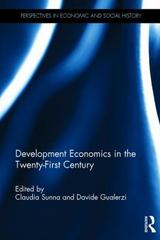Question
The following table describes the supply of mushrooms in a local market where from 1-8 mushroom hunters find mushrooms on public land and sell them
The following table describes the supply of mushrooms in a local market where from 1-8 mushroom hunters find mushrooms on public land and sell them at $20/kg. The opportunity cost of the mushroom hunters is valued at $15/hour
** There is now a negative externality: a social cost where each mushroom hunter creates $20 of environmental damage.(i.e. 5 hunters = $100 in damage)
** Given the negative externality, if the mushroom hunters were each self-employed and acting in their individual best interest, how many would go out hunting given that new mushroom hunters cannot be excluded from the market if it benefits them to collect mushrooms??
| #mushroom hunters | 1 | 2 | 3 | 4 | 5 | 6 | 7 | 8 |
| #mushrooms collected (kg) | 10 | 18 | 25 | 30 | 34 | 37 | 39 | 40 |
| Total revenue @$20/kg | 200 | 360 | 500 | 600 | 680 | 740 | 780 | 800 |
| Total wages@$15/hour | 120 | 240 | 360 | 480 | 600 | 720 | 840 | 960 |
| Total revenue -total wages | 80 | 120 | 140 | 120 | 80 | 20 | -60 | -160 |
| (Total revenue -total wages)/person | 80 | 60 | 46.67 | 30 | 16 | 3.333 | -8.571 | -20 |
Step by Step Solution
There are 3 Steps involved in it
Step: 1

Get Instant Access to Expert-Tailored Solutions
See step-by-step solutions with expert insights and AI powered tools for academic success
Step: 2

Step: 3

Ace Your Homework with AI
Get the answers you need in no time with our AI-driven, step-by-step assistance
Get Started


